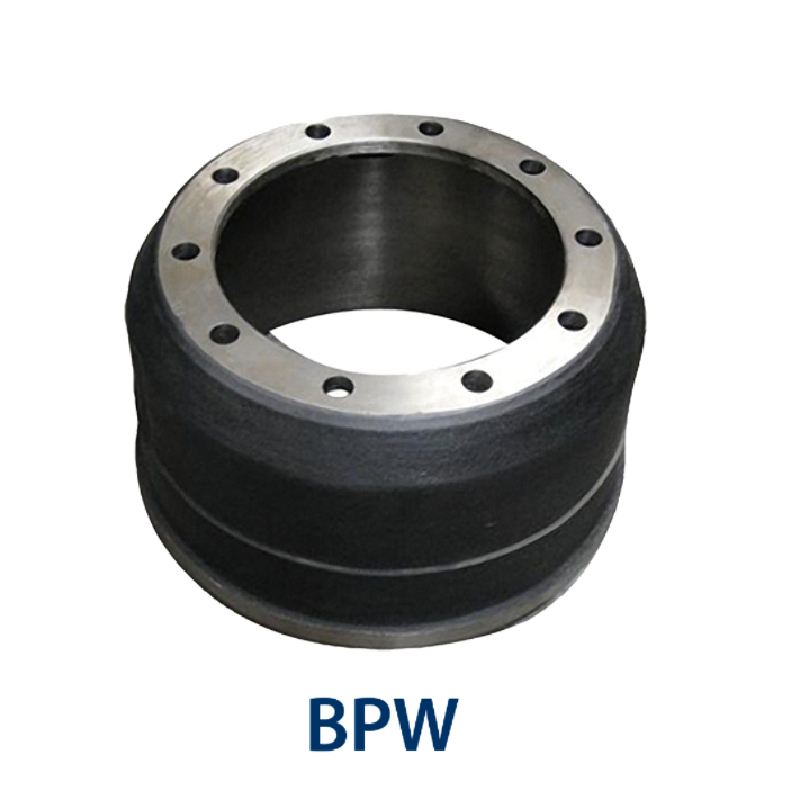lis . 13, 2024 05:26 Back to list
why do brake drums rust
Why Do Brake Drums Rust?
Brake drums play a crucial role in the braking system of many vehicles, particularly those with drum brakes. They are designed to slow down or stop the vehicle by converting kinetic energy into thermal energy through friction. However, one common issue that affects brake drums is rusting. Understanding why brake drums rust can help car owners take better care of their vehicles and ensure safe operation on the road.
The Basics of Brake Drum Composition
Brake drums are typically made of cast iron or steel, materials that are prone to rust when exposed to moisture and oxygen. Rust forms when iron or its alloys react with environmental elements, leading to the oxidation of the metal. This chemical process results in the creation of iron oxide, commonly known as rust, which can significantly deteriorate the structural integrity and performance of brake drums over time.
Factors Contributing to Rust Formation
Several factors contribute to the rusting of brake drums
1. Moisture Exposure Brake drums are often exposed to water from rain, snow, or even washing the vehicle. This exposure is particularly problematic if water is allowed to accumulate around the drums for an extended period.
2. Road Salt In regions where snow and ice are prevalent, road salt is frequently used to treat roads. This salt can easily cling to the brake drums and cause corrosion when mixed with moisture, leading to faster rust formation.
3. Frequent Use Regular usage of the brakes generates heat that can protect the drum surfaces momentarily. However, when the vehicle is parked for an extended period, especially in damp conditions, that heat dissipates, creating an environment conducive to rust formation.
why do brake drums rust

4. Neglect Lack of regular maintenance, including inspections and cleaning, can lead to the accumulation of dirt and moisture. This neglect not only promotes rust formation but can also lead to reduced braking efficiency.
5. Quality of Materials The quality of the brake drum can also influence its susceptibility to rust. Lower-quality materials may not have the same protective coatings or finishes as higher-end options, making them more prone to corrosion.
Preventing Rust on Brake Drums
To prevent brake drums from rusting, vehicle owners can take several proactive measures
- Regular Inspections Schedule periodic inspections of your brake system, including the brake drums. Look for signs of rust or corrosion and address them promptly.
- Keep It Clean Regularly wash your vehicle, especially the undercarriage and brake components, to remove dirt, grime, and road salt.
- Use Protective Coatings Applying a rust inhibitor or high-temperature brake grease on the drum surfaces can provide an additional layer of protection against moisture.
- Store Properly If possible, park your vehicle in a garage or covered area to shield it from moisture and environmental elements.
In conclusion, rusting brake drums can pose significant safety risks and lead to costly repairs if not addressed. By understanding the factors that contribute to rust formation and taking preventive measures, vehicle owners can ensure their braking systems remain in optimal condition, ultimately enhancing their safety on the road.
-
Premium Brake Drum Iveco – Durable Drum Brake Drum & Brake Shoe Solutions
NewsJul.08,2025
-
High-Performance Brake Drum Liza for Enhanced Safety Reliable Drum Brake Drum & Brake Shoe Solutions
NewsJul.08,2025
-
High-Quality Brake Drum MAZ – Durable Drum Brake Drum & Brake Drum and Brake Shoe for Optimal Performance
NewsJul.07,2025
-
High-Quality Brake Drum Kamaz for Reliable Performance Durable Drum Brake Drum & Brake Shoes
NewsJul.07,2025
-
High-Quality Brake Drum Kamaz for Reliable Performance Durable Drum Brake Drum & Brake Shoe Replacement
NewsJul.07,2025
-
Brake Drum Man - High-Quality Drum Brake Drum & Brake Drum and Brake Shoe Solutions
NewsJul.06,2025
